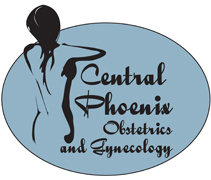 Nutrition Myth vs Fact
Nutrition Myth vs Fact
Myth #1: All fat is bad for you
Fats are a needed nutrient for good health
Different fats have different health dangers and benefits
Monounsaturated (trans) fats are can cause significant problems and should be avoided
new research has shown that eliminating saturated fat from the diet actually may not lessen the risk for heart disease
It is important to consume a variety of other fats
Fats like Coconut oil, olive, fish and avocado oils are an important part of a healthy diet
Myth #2: Diets don’t work
The converse is true, all diets work.
Some diets are dangerous for your health
- Severe calorie restrictions (hcg 500 calories/day)
- Strict rules that limit the variety of foods (cabbage soup diet)
Many diets are difficult to sustain.
Others try to be more moderate
- Weight watchers
- South beach
- Atkins
- Keto
- Paleo
The ketogenic diet is a completely different approach to dietary choices than calorie-counting, extreme willpower to make impossible sacrifices or even just a generally healthy diet full of whole foods. Instead, people on keto eat lots of healthy fats and limit all carbohydrate intake.
There is no upper limit to the length of time you can technically do keto, particularly if you’re doing it right. By “doing it right. Try the keto diet for 30 days.
It is also suggested to cycle the keto diet on and off, particularly if you are trying to lose weight.
Myth #3: Buying organic isn’t worth the cost
Organic foods are grown without artificial pesticides, hormones and/or antibiotics
Eating all organic foods is just not possible for most budgets.
But Unfortunately, the pesticides used for produce and the hormones and antibiotics given to animals raised for meat have a number of detrimental effects on your health.
Myth #4: Too much protein is hard on the kidneys and liver
This nutrition lie seems to be a result of the high-protein diets popular a couple of decades ago. The myth is that high levels of protein in the diet contribute to decreased kidney and liver function, as well as osteoporosis. These claims are simply not true.
The truth is that protein contributes to every living cell and process in our body. The protein actually helps bone metabolism and improves calcium retention, and it is potentially dangerous to consume inadequate protein.
Adding in a healthy range of proteins into your diet is the key to health!
Myth #5: All fish is healthy
Sure, getting plenty of omega-3s from fish is important. However, did you know that the way fish are sourced can greatly affect how healthy (or very unhealthy) they are for you?
Myth #6: Cholesterol is bad and eggs are unhealthy
For decades, it has been widely believed that egg, and specifically their saturated fat and cholesterol cause heart disease.
In fact, there is no relationship between egg consumption and coronary heart disease, and egg consumption is unrelated to blood cholesterol levels.
And cholesterol, unlike you may have been told, is actually an extremely important substance that aids your body in a number of vital processes.
Myth #7: Eating five to six small meals a day stimulates metabolism
For some people, frequent meals/snacks throughout the day is the right eating plan but snacking does not increase your metabolism.
Beware the calories in your snacks
Intermittent fasting How much you eat and what you eat total amount of food you eat in a day that impacts your metabolism, and intermittent fasting may be better for most individuals.
People actually feel fuller with fewer, higher protein meals than with frequent meals. A study also found that in general, higher protein intake promotes satiety, while challenging the concept that increasing the meals per day is more satisfying.
Myth #8: Sodium is bad
Sodium, or salt, has been quite the scapegoat for heart disease for a long time.
For many westerners, that’s not exactly a challenge. Many people on a standard American diet get a ton of sodium from packaged and processed foods in addition to table salt. Unfortunately, these types of foods (including table salt) have many other concerning health risks associated with them.
Lowering your salt intake can marginally lower blood pressure. But taking in too little sodium has been linked to:
- Depression-like behavior in animals
- Insulin resistance
- Increased risk factors for heart disease
- Increased mortality rate with diabetes
- Higher risk of falling in the elderly
- On the other hand, excessive sodium intake is linked to autoimmune disease, osteoporosis, high blood pressure, kidney stones and kidney disease.
Myth #9: You can make up for a bad diet with supplements
A diet of processed foods, refined sugar, whole grains, and other foods that are not nutrient dense cannot be counteracted with supplements, no matter how many you take.
Healthy foods contain tens of thousands of phytochemicals, fibers, proteins and fats that simply cannot be replicated into pill or supplement form.
However, the point of supplements is to fill in gaps and/or get excessive amounts of nutrients that you may not be able to achieve with a healthy diet alone (such as high amounts of fish oil for heart health, collagen for an aging body or inositol to treat PCOS).
Myth #10: To control your weight, the only effective method is counting calories
It’s true that diet and exercise are vital to a healthy life but calorie counting can only lead to a rise in your stress levels.
Shifting focus away from calories and emphasizing a dietary pattern that focuses on food quality rather than quantity will help to rapidly reduce obesity, related diseases, and cardiovascular risk.
The best way to lose weight is to reduce your carbohydrate intake while introducing healthy fats into your routine. This means ridding your pantry of processed foods and eating whole foods as often as possible.
